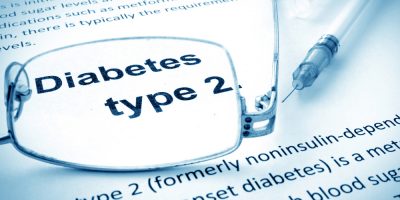- Home
- Editorial
- News
- Practice Guidelines
- Anesthesiology Guidelines
- Cancer Guidelines
- Cardiac Sciences Guidelines
- Critical Care Guidelines
- Dentistry Guidelines
- Dermatology Guidelines
- Diabetes and Endo Guidelines
- Diagnostics Guidelines
- ENT Guidelines
- Featured Practice Guidelines
- Gastroenterology Guidelines
- Geriatrics Guidelines
- Medicine Guidelines
- Nephrology Guidelines
- Neurosciences Guidelines
- Obs and Gynae Guidelines
- Ophthalmology Guidelines
- Orthopaedics Guidelines
- Paediatrics Guidelines
- Psychiatry Guidelines
- Pulmonology Guidelines
- Radiology Guidelines
- Surgery Guidelines
- Urology Guidelines
Early starch-rich breakfast, small dinner help control blood sugar in diabetes: Study

Type 2 diabetes is a metabolic disorder affecting middle-aged or older adults. The peripheral utilization of sugar is faulty in these patients due to insulin resistance. There are about 29 million people in the U.S. with type 2 diabetes with another 84 million have prediabetes, meaning their blood sugar is high but not high enough to be diabetes yet. In type 2 diabetes, insulin resistance and progressive β-cell failure require treatment with high insulin doses, that triggers a vicious cycle of continuous weight gain and a higher incidence of cardiovascular disease and other complications.
A new Tel Aviv University study finds that a starch-rich breakfast consumed early in the morning coupled with a small dinner could replace insulin injections and other diabetes medications for many diabetics. The research has been published in Diabetes Care in December.
The researchers conducted the study to find whether a three-meal diet (3Mdiet) with a carbohydrate-rich breakfast may upregulate clock gene expression and, as a result, allow dose reduction of insulin, leading to weight loss and better glycemic control compared with an isocaloric six-meal diet (6Mdiet).
"The traditional diabetic diet specifies six small meals spread throughout the day. But our research proposes shifting the starch-rich calories to the early hours of the day. This produces a glucose balance and improved glycemic control among type 2 diabetics," explains Prof. Daniela Jakubowicz of TAU's Sackler Faculty of Medicine and Wolfson Medical Center's Diabetes Unit. "We believe that through this regimen it will be possible for diabetics to significantly reduce or even stop the injections of insulin, and most of the antidiabetic medications, to achieve excellent control of glucose levels."
Prof. Jakubowicz is the lead author of the study, the result of a collaboration with Prof. Julio Wainstein and Dr Zohar Landau of Wolfson Medical Center's Diabetes Unit and Prof. Oren Froy and Dr Shani Tsameret of the Hebrew University of Jerusalem.
According to the new research, our metabolism and biological clock are optimized for eating in the morning and for fasting during the evening and night, when we are supposed to be asleep. "But the usual diet recommended for type 2 diabetes consists of several small meals evenly distributed throughout the day — for example, three meals and three snacks daily, including a snack before going to sleep to prevent a drop in sugar levels during the night," Prof. Jakubowicz says.
"But the '6M-diet,' as this is called, has not been effective for sugar control, so diabetics require additional medication and insulin. And insulin injections lead to weight gain, which further increases blood sugar levels," Prof. Jakubowicz adds.
The researchers studied 29 types 2 diabetes participants and compared a new "3M-diet," more in alignment with our biological clock, with a control group on the traditional 6M-diet. The experimental 3M-diet comprises a meal of bread, fruits and sweets in the early hours of the morning; a substantial lunch; and a small dinner specifically lacking starches, sweets and fruits.
The group on the traditional 6M-diet did not lose weight and did not experience any improvement of sugar levels, requiring an increase in medication and insulin doses. But the group on the 3M-diet not only lost weight but also experienced substantially improved sugar levels.
"Their need for diabetic medication, especially for insulin doses, dipped substantially. Some were even able to stop using insulin altogether," adds Prof. Jakubowicz. "In addition, the 3M-diet improved the expression of biological clock genes. This suggests that 3M-diet is not only more effective in controlling diabetes. It may also prevent many other complications such as cardiovascular disease, ageing and cancer, which are all regulated by the biological clock genes."
The upregulation of the biological clock gene expression in the 3M-diet might be the mechanism behind its success, as it enhances insulin secretion and improves sugar delivery into the muscles, creating a balanced daytime and nocturnal glucose metabolism. The researchers are now investigating the role certain proteins play in breakfast foods consumed by diabetics.
For further reference log on to:
https://doi.org/10.2337/dc19-1142

Disclaimer: This site is primarily intended for healthcare professionals. Any content/information on this website does not replace the advice of medical and/or health professionals and should not be construed as medical/diagnostic advice/endorsement or prescription. Use of this site is subject to our terms of use, privacy policy, advertisement policy. © 2020 Minerva Medical Treatment Pvt Ltd